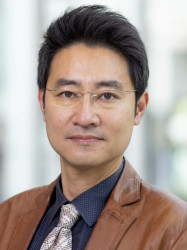BibTex format
@article{Nobu:2020:10.1186/s40168-020-00885-y,
author = {Nobu, MK and Narihiro, T and Mei, R and Kamagata, Y and Lee, PKH and Lee, P-H and McInerney, MJ and Liu, W-T},
doi = {10.1186/s40168-020-00885-y},
journal = {Microbiome},
title = {Catabolism and interactions of uncultured organisms shaped by eco-thermodynamics in methanogenic bioprocesses.},
url = {http://dx.doi.org/10.1186/s40168-020-00885-y},
volume = {8},
year = {2020}
}

